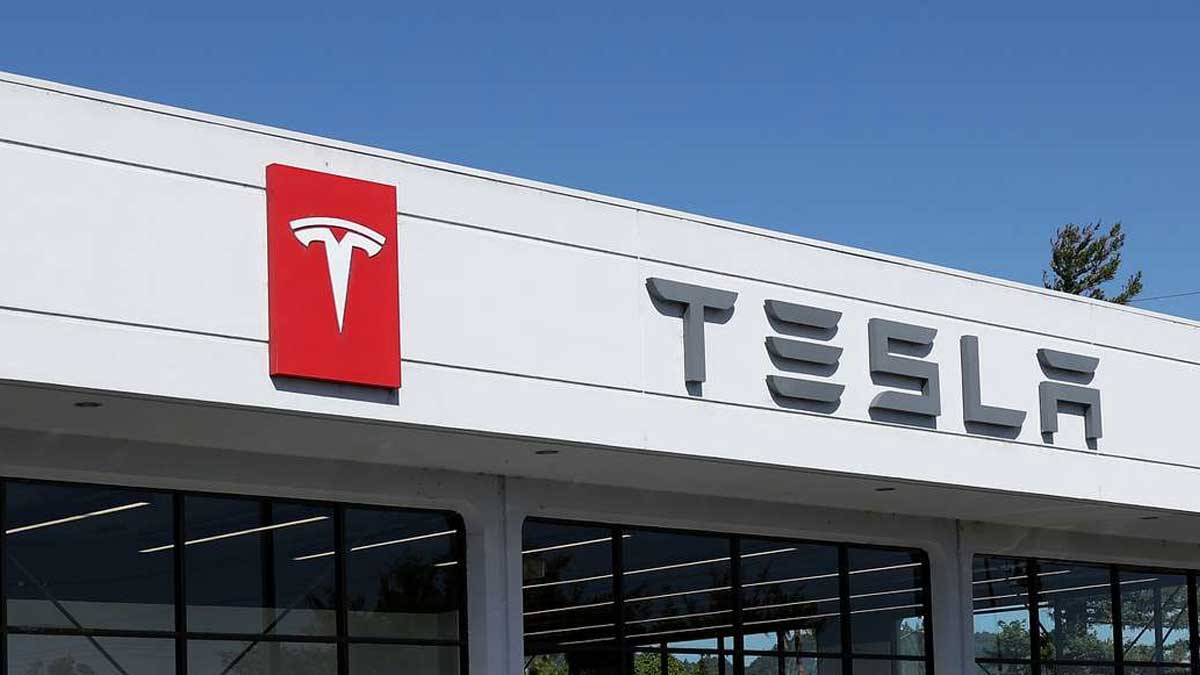- Home
- Billionaires
- Investing Newsletters
- 193CC 1000
- Article Layout 2
- Article Layout 3
- Article Layout 4
- Article Layout 5
- Article Layout 6
- Article Layout 7
- Article Layout 8
- Article Layout 9
- Article Layout 10
- Article Layout 11
- Article Layout 12
- Article Layout 13
- Article Layout 14
- Article Sidebar
- Post Format
- pages
- Archive Layouts
- Post Gallery
- Post Video Background
- Post Review
- Sponsored Post
- Leadership
- Business
- Money
- Small Business
- Innovation
- Shop
Recent Posts
Tesla Stocks Hit Record Highs After Failed Trump Assassination

On Monday, stock indexes surged to unprecedented levels as Wall Street processed the news of Saturday’s failed assassination attempt on former President Donald Trump. The incident significantly boosted the perceived likelihood of a Trump victory in the upcoming November election, leading to a remarkable market rally. Among the key beneficiaries was Tesla, widely seen as poised to gain from another Trump term due to potential favorable policy shifts.
The Dow Jones Industrial Average jumped 200 points, or 0.5%, setting a new record high. Similarly, the S&P 500 climbed 0.4%, and the tech-heavy Nasdaq rose 0.6%, both approaching the record intraday peaks they had achieved the previous week. Tesla, the electric vehicle powerhouse led by the world’s richest person, Elon Musk, saw its stock price soar by 5% to exceed $260. This increase represented the largest gain among companies with a market capitalization above $60 billion, as reported by Yahoo Finance.
Tesla’s stock has seen a remarkable rise of about 31% in July alone, bolstered by Musk’s recent endorsement of Trump. Analysts suggest that a Trump victory could be particularly advantageous for Tesla, given the potential for new tariffs on Chinese imports. Such tariffs could impede the influx of cheaper Chinese electric vehicles into the U.S. market, thereby enhancing Tesla’s competitive edge and market dominance domestically.
On the international front, stock market performance was less optimistic. Hong Kong’s Hang Seng Index dropped by 1.5%, reflecting investor disappointment with China’s lower-than-expected quarterly economic growth figures. Meanwhile, the United Kingdom’s FTSE 100 index fell by 0.8%, following a profit warning from luxury retailer Burberry, which dampened market sentiment.
Assets associated with entities anticipated to benefit from a Trump re-election also experienced notable gains. Bitcoin, the largest cryptocurrency by market value, increased by 3%. Additionally, the S&P 500’s energy and financial services sectors rose by 0.6% and 0.9%, respectively. These sectors were buoyed by expectations of lighter regulatory burdens under a potential Trump administration.
Looking ahead, the Republican National Convention, commencing Monday in Milwaukee, is expected to further influence market dynamics. Eric Beinstein, a credit markets strategist at JPMorgan, emphasized that the convention’s rhetoric and energy would be under heightened scrutiny following the assassination attempt. The political event’s impact on financial markets is anticipated to be more pronounced than usual.
Despite Trump’s historically adversarial stance towards electric vehicles, Tesla’s stock surge might seem counterintuitive. However, Musk’s close relationship with Trump and the potential for Tesla to secure a significant competitive advantage in the electric vehicle market appear to outweigh concerns. These concerns include the possible termination of federal tax credits for electric vehicle purchasers. Historical data from FactSet shows that the stock market has performed robustly under both Trump and President Joe Biden. The S&P 500 returned 70% from Election Day 2016 to Election Day 2020 under Trump and 77% since Biden’s 2020 election. While presidential politics play a role in market performance, the Federal Reserve, which sets interest rates, has a more substantial influence on equity valuations.
Recent Posts
Categories
- 193cc Digital Assets2
- 5G1
- Aerospace & Defense45
- AI33
- Arts3
- Banking & Insurance11
- Big Data3
- Billionaires308
- Boats & Planes1
- Business315
- Careers13
- Cars & Bikes74
- CEO Network1
- CFO Network17
- CHRO Network1
- CIO Network1
- Cloud10
- CMO Network18
- Commercial Real Estate7
- Consultant1
- Consumer Tech171
- CxO1
- Cybersecurity59
- Dining1
- Diversity, Equity & Inclusion4
- Education7
- Energy8
- Enterprise Tech29
- Events11
- Fintech1
- Food & Drink2
- Franchises1
- Freelance1
- Future Of Work2
- Games141
- GIG1
- Healthcare77
- Hollywood & Entertainment175
- Houses1
- Innovation41
- Investing2
- Investing Newsletters4
- Leadership65
- Lifestyle11
- Manufacturing1
- Markets20
- Media189
- Mobile phone1
- Money13
- Personal Finance2
- Policy554
- Real Estate1
- Research6
- Retail1
- Retirement1
- Small Business1
- SportsMoney30
- Style & Beauty1
- Success Income1
- Taxes2
- Travel10
- Uncategorized8
- Vices1
- Watches & Jewelry2
- world's billionaires278
Related Articles
Adani Denies $250M Bribery Allegations, Vows Legal Fight
Indian billionaire Gautam Adani addressed the recent allegations brought forth by U.S....
By 193cc Agency CouncilNovember 30, 2024Why NotebookLM Will Revolutionize Small Businesses
Last year, I wrote that Google’s NotebookLM was “definitely not open for...
By 193cc Agency CouncilNovember 30, 2024Dell and HP Shares Drop 12% on Weak Forecasts
Shares of personal computer giants Dell Technologies and HP Inc. dropped sharply...
By 193cc Agency CouncilNovember 28, 2024Hyundai Recalls 226,000 Vehicles for Camera Defect
Hyundai has announced its fourth vehicle recall in November, affecting over 226,000...
By 193cc Agency CouncilNovember 27, 2024















Leave a comment